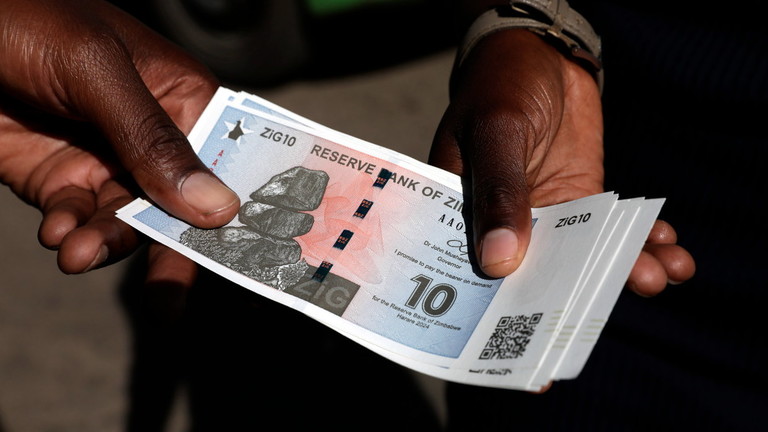Africa
Zimbabwe Implements De-Dollarization Roadmap

Zimbabwe has officially adopted a de-dollarization roadmap, aiming to reduce reliance on the US dollar and strengthen the country’s local currency in a bid to stabilize the economy.
The Zimbabwean government has given its approval to a roadmap for transitioning from the use of US dollars to ZiG, a gold-backed currency introduced some months ago. The aim is to stabilize the country’s economy in Southern Africa.
On Tuesday, during a media briefing in Harare after the cabinet meeting, Jenfan Muswere – the Information Minister – announced the decision.
The minister informed reporters that a de-dollarization roadmap with a specified time frame has been established to implement ZiG as an accepted legal tender in the economy.
For over a decade, Zimbabwe has been grappling with a currency crisis and as per the central bank’s data cited by Bloomberg, around 70% of all economic transactions are currently carried out in US dollars which the country has leaned on heavily.
In every trading day of this year, the Zimbabwean dollar experienced devaluation against the US currency prior to ZiG’s (Zimb Gold) release in April. This marks as reportedly the government’s sixth endeavor within 15 years to establish stability for their domestic currency through ZiG launch. The launch is reinforced by $100 million worth of foreign cash reserves and 2.5 tons of gold.
The International Monetary Fund (IMF) announced in a press release towards the end of June that there has been no significant change to ZiG’s official exchange rate, thus marking an end to Harare’s previous macroeconomic instability during Q1.
In the previous month, Zimbabwean President Emmerson Mnangagwa indicated that by 2026, instead of the previously anticipated timeframe of 2030, the new currency has potential to be established as the country’s only valid legal tender.
The government has proposed a plan, as announced by Information Minister Muswere on Tuesday, to raise the penalties for individuals who engage in unfair trade practices such as unjust price hikes, manipulation of ZiG currency and smuggling.
According to him, fines for different offenses will be assessed by the authorities. The amount varies from a minimum of $200 to a maximum of $5000 or its equivalent in ZiG currency.
